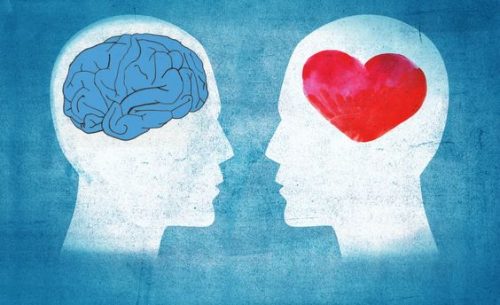Understanding Emotional Intelligence and It’s Role In Success
“Emotions are not problems to be solved. They are signals to be interpreted.”
This insightful quote sets the stage for our exploration into emotional intelligence (EI) and its crucial role in achieving success. In this article, we delve deep into the realms of EI, illuminating how it not only influences our personal and professional lives but also acts as a cornerstone for success. Join us on this enlightening journey to understand the significance of EI in crafting a successful and fulfilling life.
Understanding Emotional Intelligence
Firstly, what is Emotional Intelligence? Emotional Intelligence is the ability to recognise, understand, manage our own emotions, and influence others’ emotions. It’s a vital skill that goes beyond traditional IQ, encompassing awareness of emotional dynamics within and around us. EI is essential for navigating social complexities, fostering stronger relationships, and making informed decisions. It’s like a compass, guiding us through the emotional landscapes of our daily lives, crucial for achieving success in various domains.
The Pillars of Emotional Intelligence
Emotional Intelligence is built on four key pillars:
Self-awareness: This involves recognising and understanding your emotions. It’s the first step towards EI and fundamental for personal growth and success. Being aware of your emotions aids in making better decisions and understanding your impact on others.
Self-regulation: Managing emotions positively is key to handling stress, adapting to changes, and overcoming challenges – essential for achieving and maintaining success in both personal and professional spheres.
Social awareness: Sensing and reacting to others’ emotions is vital for building rapport, teamwork, and effective communication in personal and professional relationships, leading to successful collaborations and networks.
Relationship management: This component is crucial for building and maintaining strong relationships, a key aspect of success in all areas of life. It involves effective communication, conflict resolution, and empathetic engagement.
Emotional Intelligence in the Workplace:
“Emotional intelligence is the key to both personal and professional success.”
In professional settings, EI is invaluable for teamwork, morale, and leadership. Leaders with high EI inspire and motivate their teams, manage stress, and resolve conflicts efficiently, leading to a more productive and harmonious workplace. Employees with strong EI adapt better to workplace dynamics and collaborate effectively, making them valuable assets to any organisation.
Overcoming Emotional Blind Spots:
“Unexpressed emotions will never die. They are buried alive and will come forth later in uglier ways.” – Sigmund Freud
Addressing emotional blind spots is essential for personal development and building effective relationships. Recognising and managing these areas prevent potential setbacks in personal and professional journeys, leading to more successful and fulfilling interactions.
Building Emotional Resilience:
“Fall seven times, stand up eight.” – Japanese Proverb
Developing resilience allows individuals to recover from setbacks and maintain emotional stability, a key factor in long-term success. It involves creating coping strategies and maintaining a positive outlook, essential for enduring and thriving amidst life’s challenges.
The Art of Empathy
“Empathy is seeing with the eyes of another, listening with the ears of another, and feeling with the heart of another.” – Alfred Adler
Empathy, the ability to understand and share the feelings of others, is a cornerstone of emotional intelligence. It enhances our ability to communicate effectively and forge deeper connections. Empathy in action can be seen in active listening, understanding different perspectives, and showing genuine concern for others. Empathy is pivotal in building a more understanding, effective, and compassionate society, underlining its universal importance across all areas of human interaction.
Emotional Intelligence and Decision Making
“Choose your emotions, don’t let them choose you.”
Emotional intelligence plays a crucial role in decision-making. It allows us to consider the emotional aspects of a situation, leading to more thoughtful and informed choices. This involves balancing emotional and rational thinking, understanding the emotional impact of decisions, and using emotional insight to guide our actions.
Cultivating Emotional Intelligence
“Intelligence is the ability to adapt to change.” – Stephen Hawking
Developing emotional intelligence is a continuous process. It involves self-reflection, learning from experiences, and being open to feedback. Techniques such as mindfulness, journaling, and empathy exercises can enhance EI. Regular practice and commitment to personal growth can significantly improve our emotional intelligence over time.
Final Thoughts: Emotional Intelligence as a Lifelong Journey
“Life is a journey, not a destination.” – Ralph Waldo Emerson
Embracing emotional intelligence is not an end goal, but a lifelong journey of growth and understanding. Learn to reflect on our experiences, practice empathy, and remain open to the emotions of ourselves and others. This continual process of self-awareness and emotional growth allows us to respond more thoughtfully to life’s challenges and opportunities. As we develop our emotional intelligence, we become better equipped to handle complex emotional landscapes, both in personal and professional contexts.
Nurturing emotional intelligence involves actively seeking opportunities for personal development, whether through meaningful conversations, reflective practices like journaling, or professional guidance such as coaching or therapy. It’s about recognising that every interaction and every experience is an opportunity to learn more about our emotional selves and improve our ability to connect with others. Let’s embark on this path of emotional enlightenment, where each step forward enriches our understanding of ourselves and the world we live in.
Final Remarks
Thank you for reading this article. Remember, emotional intelligence is more than just a concept; it’s a practical skill that shapes our interactions, decisions, and overall journey through life. May your journey in developing!



